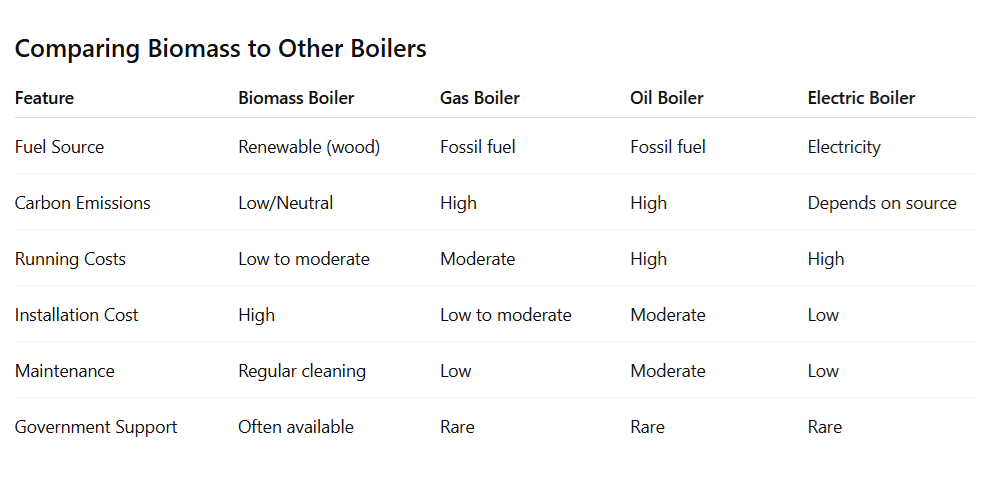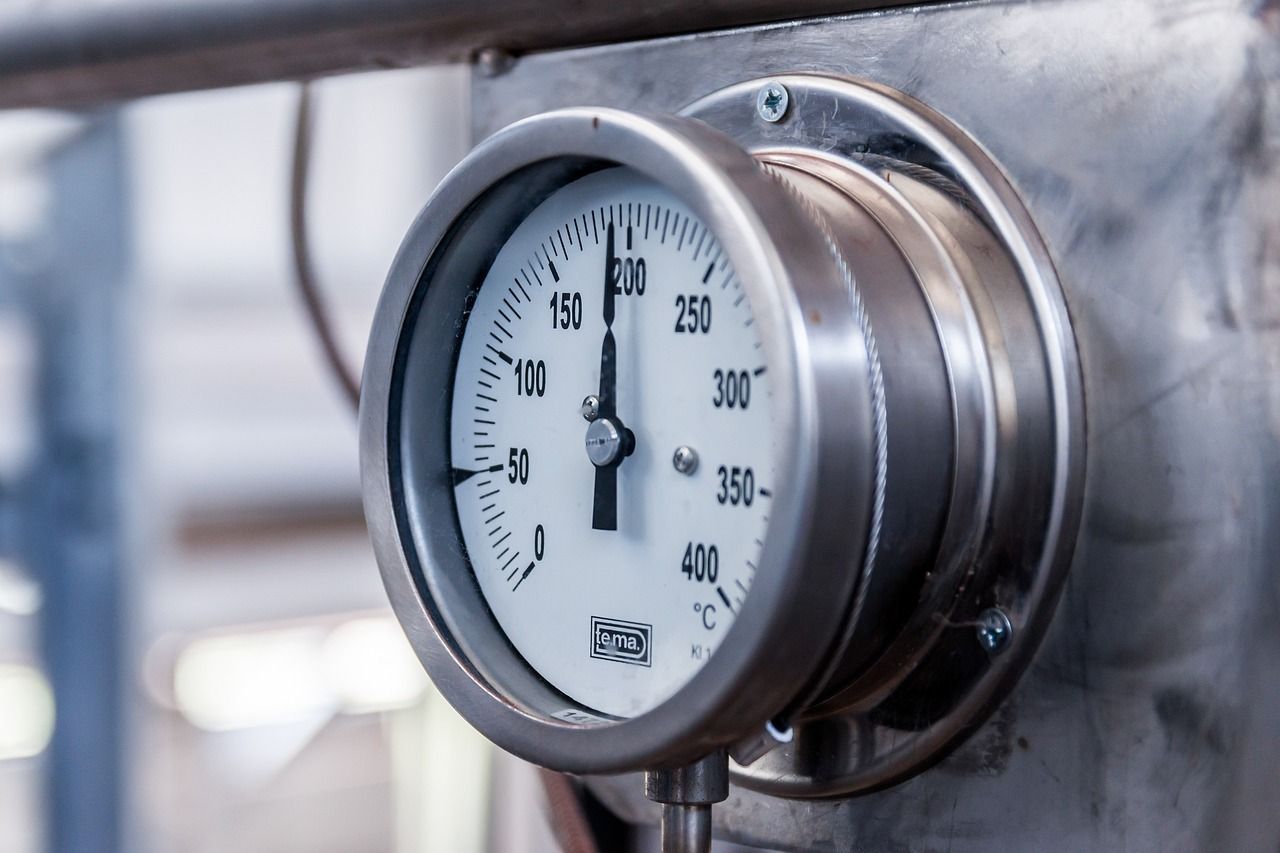Why Choose a Biomass Boiler? A Sustainable Alternative to Traditional Heating Systems
In our search for cleaner and more sustainable energy sources, biomass boilers are gaining in popularity as an eco-friendly alternative to traditional heating systems. Whether you're managing a large commercial facility or looking to upgrade your home's heating system, understanding the advantages of a biomass boiler over the more traditional types, (gas, oil, or electric boilers) is important. Let’s explore why biomass might be the right choice for a greener future.
Firstly, What Is a Biomass Boiler?
A biomass boiler burns organic materials—typically wood pellets, chips, or logs—to generate heat for central heating and hot water. Unlike fossil fuels, biomass is a renewable energy source, making it an attractive option for reducing carbon emissions and promoting energy independence.
Advantages of Biomass Boilers Over Other Boiler Types
1. Eco-Friendly and Sustainable
Biomass boilers are carbon-neutral in principle. The CO₂ released during combustion is roughly equal to the amount absorbed by the plants during their growth, creating a balanced carbon cycle. In contrast, burning fossil fuels like gas or oil releases carbon stored underground for millions of years, significantly contributing to greenhouse gas emissions.
2. Renewable Fuel Supply
Biomass fuel sources, such as wood waste, agricultural residues, and purpose-grown energy crops, are renewable and widely available. As long as forests and crops are managed sustainably, the supply of biomass is practically inexhaustible—unlike finite fossil fuels.
3. Lower Fuel Costs
Biomass fuel can be significantly cheaper than oil, LPG, or electricity, especially in areas where wood waste or agricultural byproducts are readily available. Moreover, prices for biomass tend to be more stable over time, whereas fossil fuel markets are notoriously volatile.
4. Government Incentives
Many governments offer incentives, grants, or subsidies for installing biomass boilers as part of their commitment to reducing carbon emissions. In the UK, for example, the Renewable Heat Incentive (RHI) has supported homeowners and businesses switching to biomass systems.
5. Waste Reduction
Biomass boilers can utilize waste materials that would otherwise end up in landfills. This not only reduces environmental impact but also provides an economic use for agricultural and forestry by-products.
6. Efficient Heating
Modern biomass boilers are highly efficient, often rivalling or exceeding the performance of gas and oil boilers. With proper fuel and regular maintenance, these systems can provide reliable, steady heat for both domestic and commercial properties.
7. Energy Independence
Using locally sourced biomass fuel reduces reliance on imported gas and oil, contributing to national energy security and supporting local economies.

So There You Have It…
While biomass boilers may require a higher initial investment and regular maintenance, their long-term environmental and economic benefits make them a smart choice for those looking to reduce their carbon footprint and embrace renewable energy. As global focus shifts toward sustainability, investing in a biomass boiler is a meaningful step toward a greener, more resilient future.
You might also like



